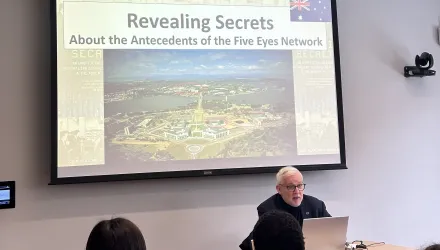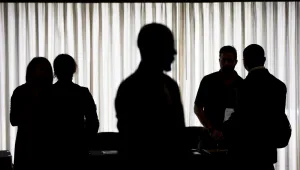AUSTRALIAN Prime Minister Tony Abbott's imperious dismissal of Indonesian complaints over spying betrays profound ignorance of the new realities of Asia, of which Indonesia is an integral part, to say nothing of diplomatic protocol.
Certainly, countries spy on one another: Even friendly countries engage in friendly spying. But it is another matter when they spy or try to spy on heads of state or government, their families, and their inner circles. When they are caught, they apologise, as United States President Barack Obama did to German Chancellor Angela Merkel over the American tapping of her phone.
Mr Abbott has had neither the courtesy nor the good sense to do so with Indonesian President Susilo Bambang Yudhoyono, whose calls - and those of his wife - Australian intelligence had tried to intercept.
Now, the President is no stranger to being spied on. He knew that his phone and the phones of his senior ministers were being tapped during the 2007 Climate Change Conference in Bali, then in 2009, and yet again in 2010, when he learnt that the United States had bugged a meeting with the Chinese. According to a senior government source, the President summoned his foreign policy adviser Dino Pati Djalal to lodge a protest with the Americans.
But those complaints were made privately. This time around, the spying has become public because of media leaks and, consequently, Dr Yudhoyono has had to react publicly.
There is a domestic angle as well. By allowing public anger to well up against the Australians, Dr Yudhoyono is playing to the gallery to revive the fortunes of his Democrat Party before parliamentary elections in April next year. The Australians appear to have lent him a helping hand, although that could not have been their intention.
However, political considerations do not detract from the deep personal affront that he has suffered. The President is known to be extremely protective of the privacy of his family, particularly the First Lady, and the revelations that the Australians could go so far came as a shock to him. This was all the more since he has worked harder than perhaps any other Indonesian president to build ties with Australia and convince his maritime neighbour not to view his sprawling archipelago as a security threat.
What the spying proved was that while publicly Australians feted him on the sincerity of his offer of good bilateral relations, privately they harboured doubts about Indonesia's strategic intentions. Indeed, these doubts persisted even though an assertive China was making strategic moves in the region that were alarming smaller nations and could draw Jakarta and Canberra closer. China Threat or not, the Indonesia Threat appeared to be alive in Australian minds.
The final straw was Mr Abbott's response - or the lack of it - to Indonesian calls for an apology for the spying. Mr Abbott launched into a tutorial that was breathtaking in its condescension. "Importantly, in Australia's case, we use all our resources including information to help our friends and allies, not to harm them," he said.
"Similarly Australia shouldn't be expected to detail what we do to protect our country any more than other governments should be expected to detail what they do to protect theirs. Others should ask of us no more than they are prepared to do themselves," he added. He later described the surveillance as "reasonable".
Indonesia is a fast-growing economy that is a member of the Group of 20 nations and is part of a region whose reviving fortunes are seen most dramatically in China and Indonesia. As Asean's largest country and economy, Indonesia is a lynchpin state of a region at the heart of peace, stability and prosperity in the Asia-Pacific region.
The American "pivot" to the region involves Australia in a partnership in which the cooperation of South-east Asian countries such as Indonesia will be crucial. Canberra, therefore, must learn to treat its regional partners with the respect that they deserve.
Being able to say "sorry" for having intruded into the privacy of a head of state, his spouse and his officials should not be so difficult. By contrast, sanctimonious and tendentious responses to legitimate demands will serve merely to reinforce the caricature of Australians as transplanted Europeans living on borrowed Asian time.
The writer heads Pereira International, a Singapore-based political consulting firm.
Pereira, Derwin. “The true colours of Australian diplomacy.” The Straits Times, November 23, 2013





